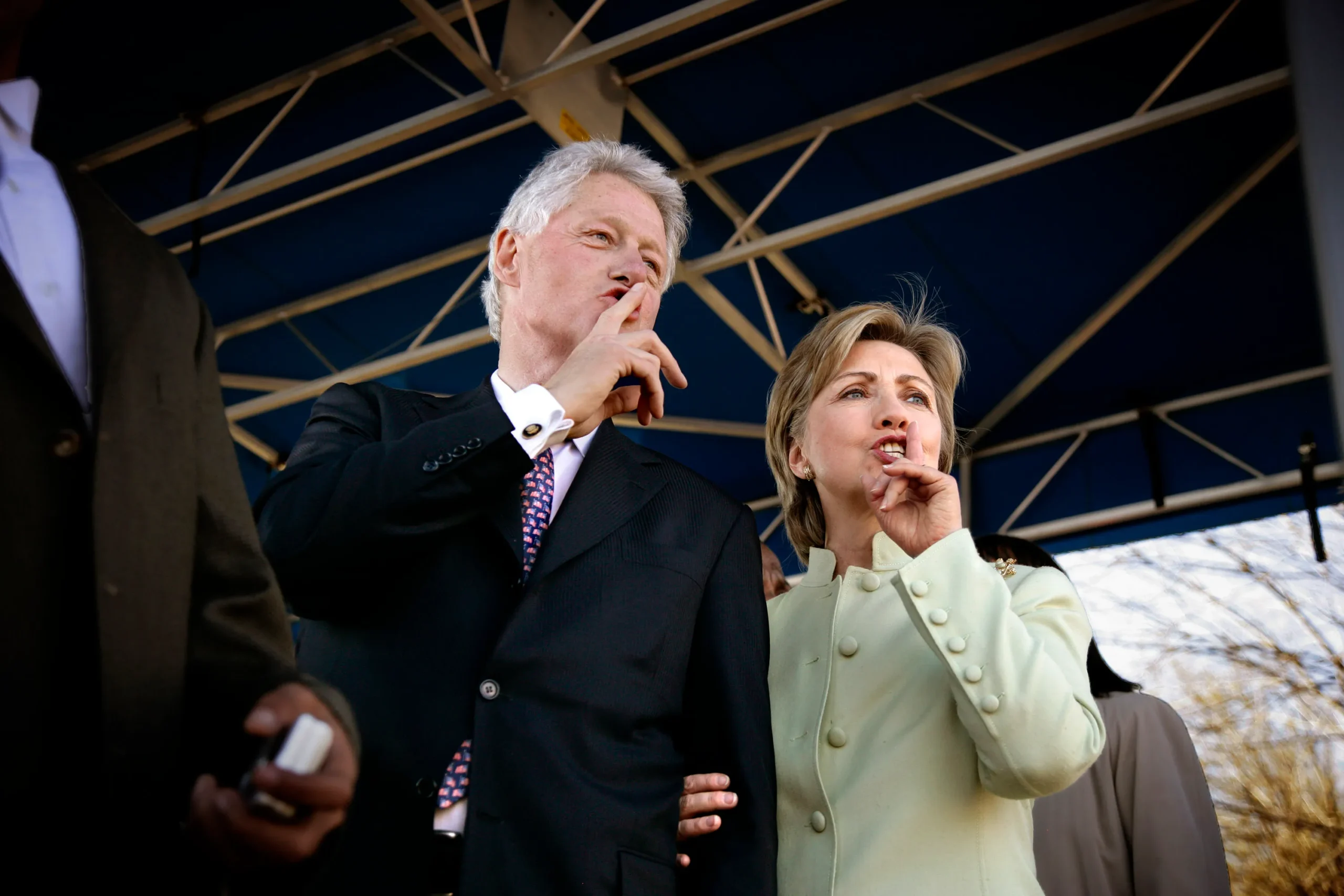Former President Bill Clinton revealed on Wednesday that he is willing to discuss the possibility of a preemptive pardon for his wife, former Secretary of State Hillary Clinton, should President Joe Biden raise the issue. The comments, made during an appearance on ABC’s The View, come as President-elect Donald Trump’s administration signals potential investigations into his political opponents, including Hillary Clinton.
A “Fool’s Errand” to Target Hillary Clinton
Bill Clinton dismissed the idea of renewed legal action against his wife, describing it as a “fool’s errand.” He referenced Trump’s 2016 campaign rhetoric, where “Lock her up” chants became a hallmark among his supporters, spurred by allegations surrounding Hillary Clinton’s use of a private email server during her tenure as secretary of state.
“If Kash Patel is determined to make one up, he could do it,” Clinton said, referencing Trump’s nominee for FBI director, Kash Patel, who has previously suggested Clinton may have committed crimes. “But I think if President Biden wanted to talk to me about that, I will talk to him about it.”
Reflecting on Past Pardons
Clinton’s openness to the conversation is tempered by his own controversial history with presidential clemency. During his final days in office, he pardoned billionaire Marc Rich, who had been a fugitive for decades after being convicted of fraud and tax evasion. The pardon drew significant backlash, and Clinton acknowledged this history on The View, stating, “I don’t think I should be giving public advice on the pardon power.”
He emphasized, however, that Hillary Clinton had been thoroughly investigated and was never charged with wrongdoing. “They’ve got a problem with her because first, she didn’t do anything wrong. Second, she followed the rules exactly as they were written,” he said, adding that even Trump’s State Department found no evidence she sent or received classified emails on her personal device.
Biden Weighs Blanket Pardons
As Trump’s transition team prepares to take office, Biden is reportedly considering blanket pardons for political officials who may face investigations, even if they haven’t broken the law. Such a move would preempt legal battles and spare individuals from exorbitant legal fees in the face of potential retaliatory action by Trump.
Trump has made no secret of his intent to pursue his political opponents. During his recent NBC Meet the Press appearance, he vowed to imprison every House lawmaker who participated in the January 6th investigation. Targets on his list include former Rep. Liz Cheney, Dr. Anthony Fauci, and special counsel Jack Smith, who led federal cases against Trump.
Hunter Biden Controversy Adds to Clemency Debate
The discussion of clemency powers has intensified following President Biden’s controversial decision to pardon his son, Hunter Biden, for federal felony convictions tied to a handgun purchase and tax violations. Biden had previously pledged not to pardon Hunter, but reversed course, citing political targeting.
In his statement announcing the pardon, Biden said, “No reasonable person who looks at the facts of Hunter’s cases can reach any other conclusion than Hunter was singled out only because he is my son — and that is wrong.”
The move has sparked debate about the use of presidential clemency, with critics accusing Biden of hypocrisy while supporters argue it highlights the justice system’s vulnerabilities to political influence.
A Precedent-Setting Debate
As Biden considers further pardons in his final weeks in office, the conversation surrounding clemency’s role in protecting individuals from politically motivated investigations is reaching new heights. Bill Clinton’s willingness to discuss a potential pardon for Hillary Clinton underscores the stakes in this politically charged environment.
Whether Biden decides to take preemptive action for Clinton or others remains uncertain, but Trump’s rhetoric and promises of retribution ensure that the issue will remain at the forefront of public and political discourse.
Sources:
- ABC’s The View: Bill Clinton Discusses Pardons
- Daily Mail: Bill Clinton Open to Discussing Hillary Pardon
- Politico: Biden Weighs Blanket Pardons
- NBC Meet the Press: Trump’s Pledges for Revenge
- The Hill: Biden’s Clemency Decisions



